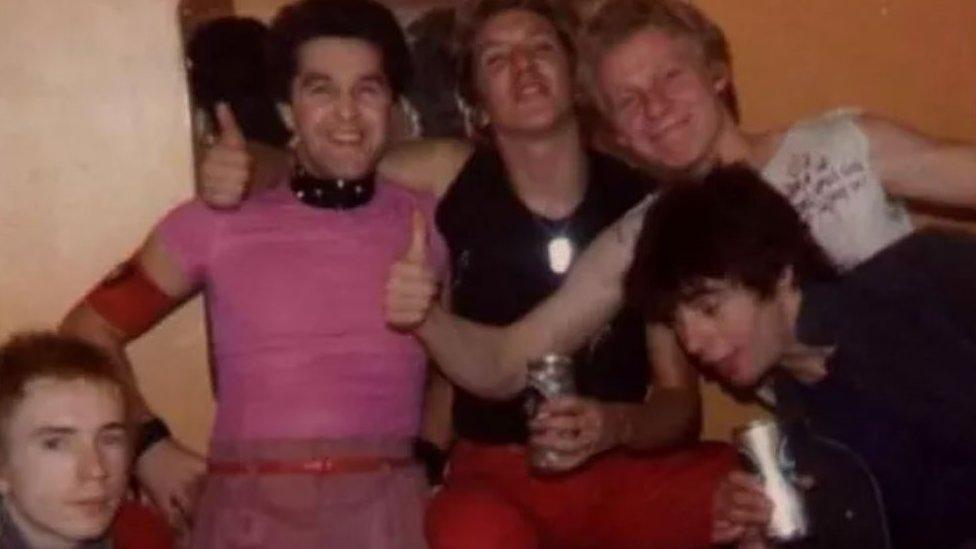The Sex Pistol, ex-MP and the fight for live music
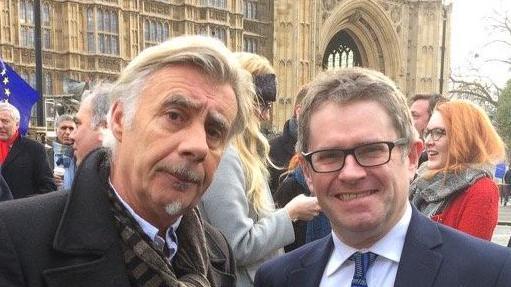
Sex Pistols bassist Glen Matlock and then Cardiff West MP Kevin Brennan at a demonstration outside the Houses of Parliament
- Published
One was a teenage Sex Pistol who fought the establishment, and the other was an MP and former government minister.
But Glen Matlock and Kevin Brennan bridged the gap from punk to politics by forging an unlikely partnership to protect music venues.
They were part of the campaign which led to a law to safeguard venues under threat from developers.
Matlock is back on the road again, and has spoken about his unexpected friendship with former Cardiff West MP Brennan - now a top aide to Welsh First Minister Eluned Morgan - and their fight to keep music live.
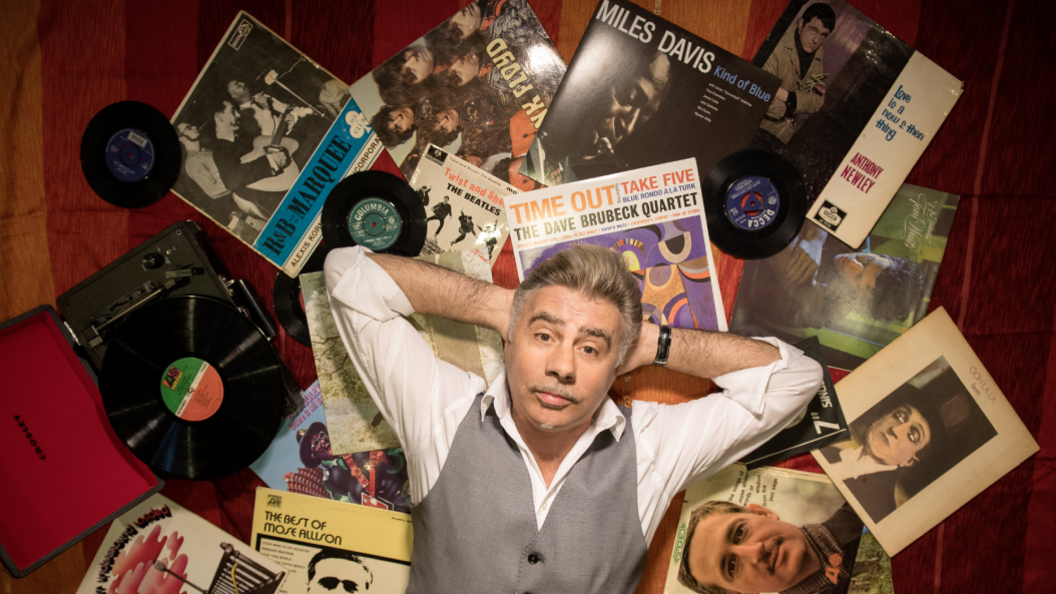
"Bigger bands shouldn't forget how they came through and if they can help out in some way, they should," says Sex Pistol Glen Matlock
How Danny Boyle brought the Sex Pistols to life
- Published28 May 2022
Miners' strike rage fuelled Manics success - Wire
- Published31 August 2024
Five ways Taylor Swift stole Welsh hearts
- Published19 June 2024
His solo tour includes two shows in Wales, and follows a reunion with fellow Sex Pistols Paul Cook and Steve Jones - although not John Lydon, aka Johnny Rotten, after the famously tempestuous band fell out once again.
The reformed Pistols' shows raised money to help save Cook's local venue in London which was facing closure.
"Bigger bands shouldn't forget how they came through and if they can help out in some way, they should," said Matlock. "We helped Shepherd's Bush Hall, and it led to the Sex Pistols reforming properly."
In the late 1970s the Pistols, as the figureheads of the punk movement, were seen by many as public enemy number one, with their assaults on the music industry, the monarchy - and pretty much everything else.
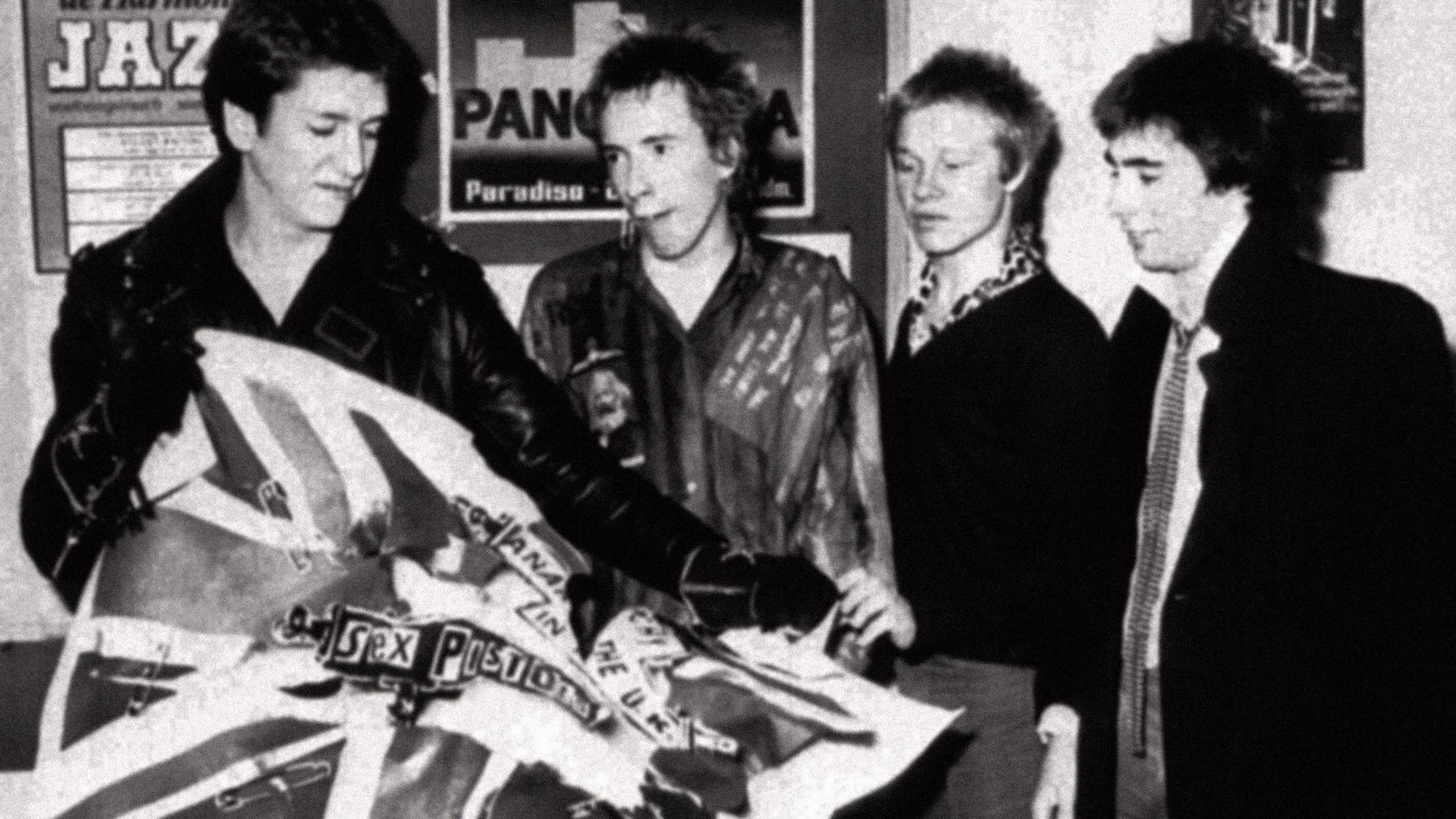
The Sex Pistols after the announcement they were splitting from record company EMI in 1977: L-R: Steve Jones, Johnny Rotten, Paul Cook and Glen Matlock
Now their bassist and main songwriter is focused on ensuring today's bands still have somewhere to play.
"I was involved with The Musicians' Union," he said. "There was a photocall outside Parliament about the Agent of Change Act, calling for action to protect music venues.
"Situations like where there's a club and someone builds a block of flats next to it. Then people moan about the noise, when the venue was there first.
"Whoever changes what is already there is the 'agent of the change' and has to deal with the consequences. Something needed to be done because it was closing down venues around the country.
"This guy came up to me and said what do you think about this bill? He said: 'I can help - I'm the Labour MP for Cardiff West'. We swapped numbers and I got on the Tube.
"When I got home and got [phone] reception again, he'd sent me a draft white paper. We had a meeting and he invited me to the House of Commons."
Brennan had already backed changes to planning laws to safeguard venues, including a campaign to protect those in Womanby Street in Cardiff.
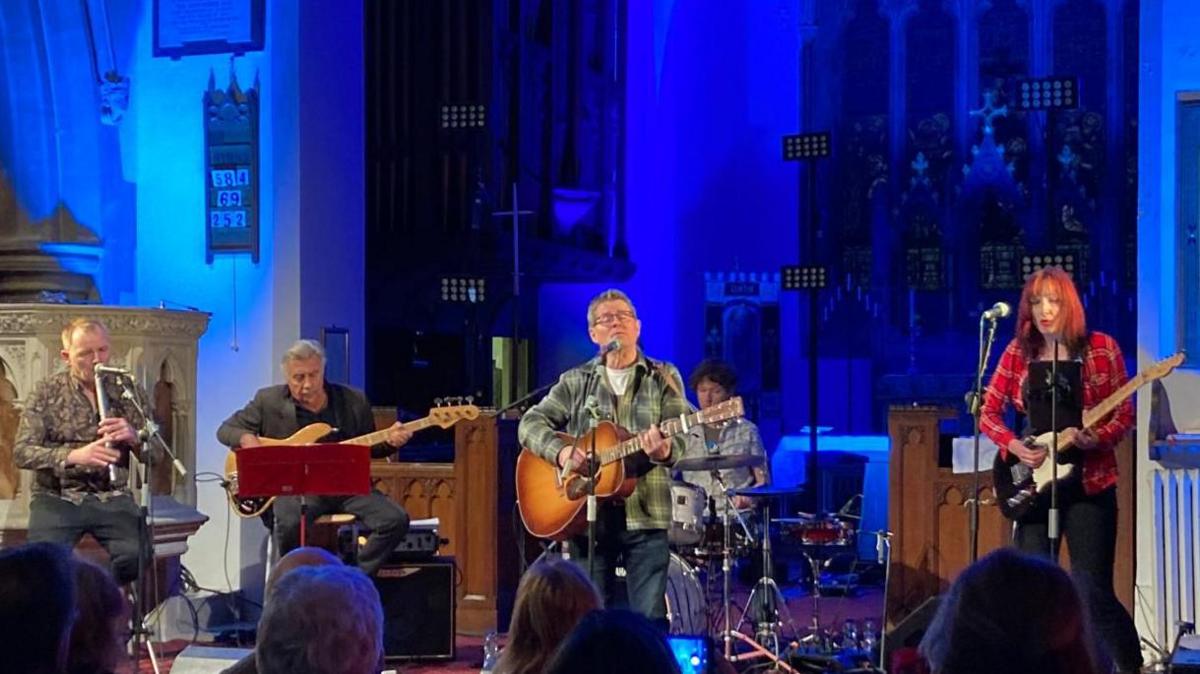
Glen Matlock performs with Kevin Brennan when he was an MP in St John's Church in Canton, in what was his Cardiff West constituency
Brennan said: "This was an issue I was interested in, so I went over, then realised who it was. I was a big fan of the Sex Pistols and The Clash.
"Quite a few politicians are into music and a lot of musicians are interested in politics. If people like Bono and Bob Geldof can get involved in politics, why can't politicians get involved with music?
"The Music Venues Trust tries to prevent the unnecessary closure of grassroots music venues. They come under pressure for all sorts of reasons: bad landlords, complaints about noise or other issues.
"We did this through a private member's bill in Westminster: The Agent of Change Bill had cross-party support and passed into law, external.
"So the principle has been established. But it doesn't mean there aren't still other pressures on venues, from issues like planning to financial viability rates."
However, perhaps their friendship was not so unlikely. Brennan, who stood down as an MP in July after 23 years, played in what he called the world's first parliamentary rock band, MP4, and wrote and recorded his own songs.
"It transpired that Kevin was an accomplished folk musician," said Matlock. "He told me about recording his album and I said 'I can put some bass on it if you like'."
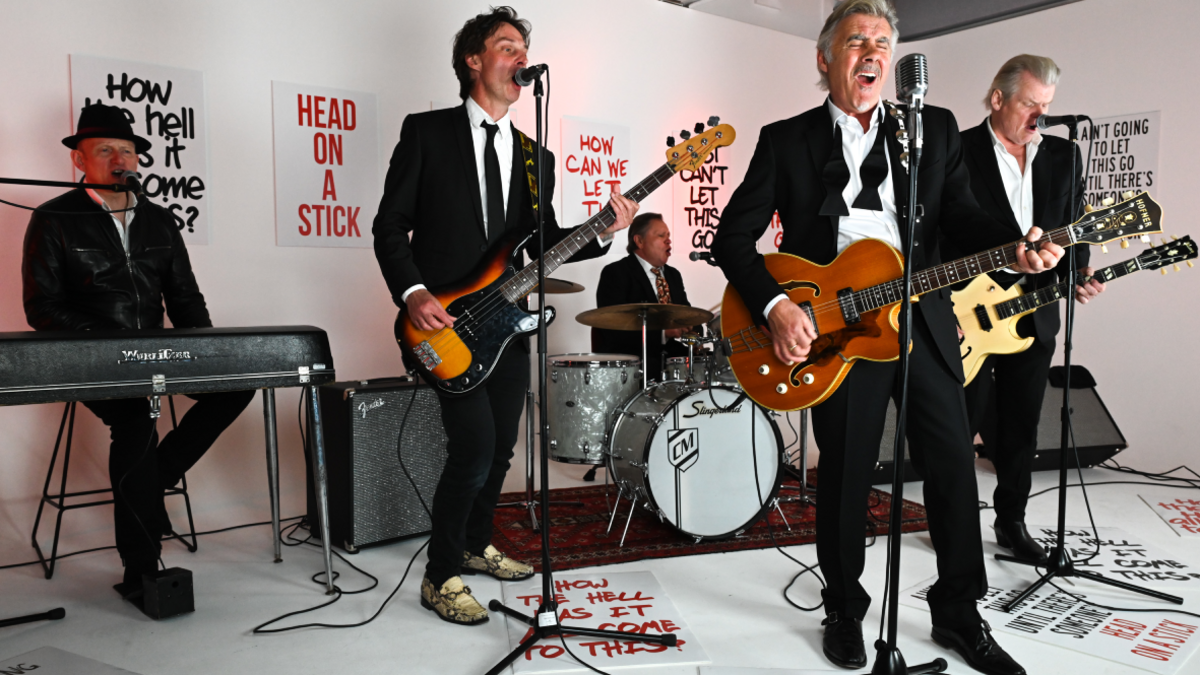
Glen Matlock, who is 68, has been playing live for nearly five decades
Brennan said: "So I ended up making my little indie folk album The Clown and the Cigarette Girl with a Sex Pistol on bass.
"We did a launch in Cardiff, a big surprise for the crowd of 150 to see a punk legend at St John's Church in Canton. Then the next night he played with Blondie in front of a few thousand people [in Cardiff].
"He's a musician’s musician - he just loves to play.
"I never thought when I became a MP I'd end up playing in a band with a Sex Pistol. Funny how things turn out!"
Matlock praised Brennan as a "very good folk musician" and "one of the few people in Parliament" who had talked about the effects of Brexit on touring musicians.
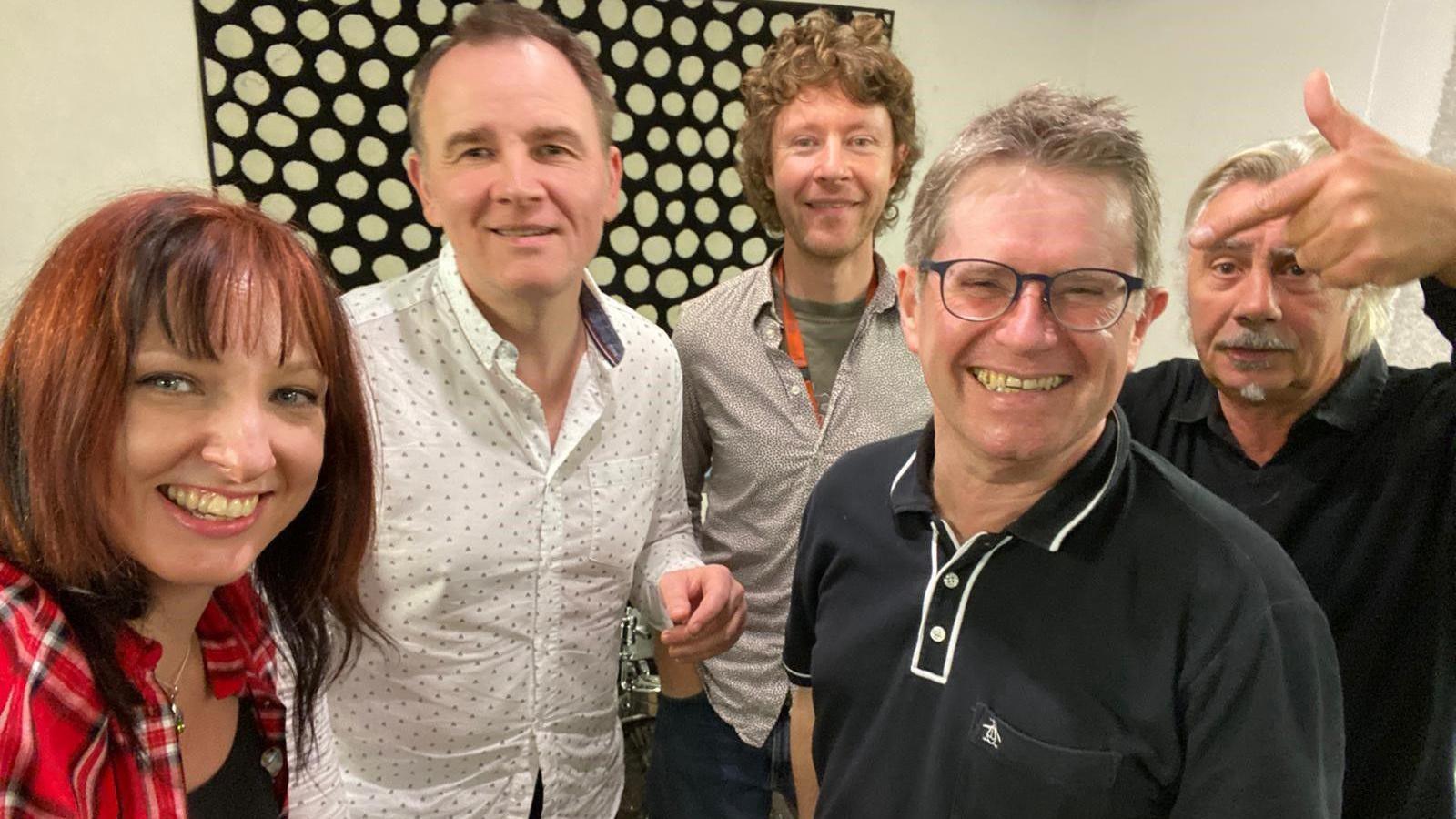
"I never thought when I became a MP I'd end up playing in a band with a Sex Pistol," says Kevin Brennan, with Glen Matlock (right) and Brennan's live band
The Pistols' bassist said there was now "a realisation Brexit hasn't been good for touring musicians. There's been a huge knock-on effect, not just for musicians, but for trucking companies, catering workers, lighting guys. There has to be a better way through it.
"People like [The Who singer] Roger Daltrey and Johnny Rotten were pro-Brexit. But when they realised it would affect them they signed a petition to try to say we've got to have special rights."
He added: "I haven't spoken to John directly about this, but he knows what I think.”
For his part, Daltrey said in 2021 that he still supported Brexit, but wished the Conservative government at the time had "made the easing of restrictions for musicians and actors a higher priority".
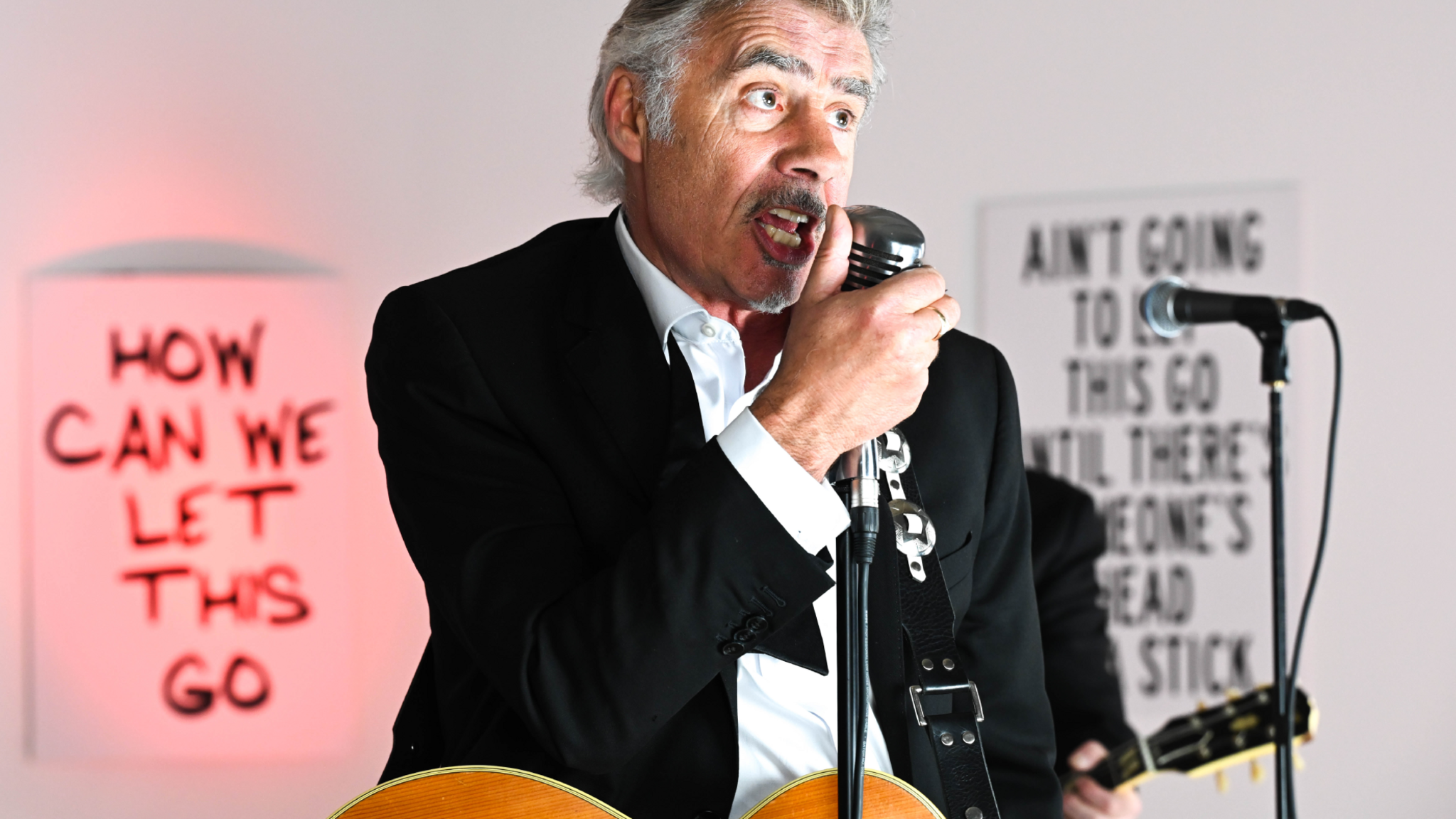
"I still write protest songs," says Matlock, "I think consequences have been coming for a long time for some our more self-centred politicians"
On his latest tour, Matlock is purposely picking venues in smaller towns that do not often feature on tour schedules.
So he plays The Tivoli in Buckley, Flintshire, on Thursday, 21 November, and Clwb Crown in Merthyr on Friday 29 November.
The Merthyr date brings flashbacks to a gig the Pistols played a few miles away in Caerphilly almost 48 years ago at the height of their notoriety.
In December 1976 the band had just sworn on teatime TV and many shows on their Anarchy in the UK tour were banned. But although the Caerphilly gig went ahead, they were met by a large group of singing Christians, who picketed fans as they went in, which featured in the Pistols' film The Great Rock 'n' Roll Swindle.
Matlock said: "The show was rescheduled from the Anarchy tour. Things got big in the meantime, we went back a few weeks later and there were people saying we were calling up the devil and kids would go to hell if they went to the gig.
"It was cold and pouring with rain, we were inside and they were all out getting wet. One of the local councillors in more recent years admitted it was all a bit daft, really. Good publicity at the time, though."
By next year, Matlock will have been performing live for 50 years, and has no intention of slowing down. He has played with bands like Blondie, The Faces, and Primal Scream as well as the recently reformed Pistols, has written two books about his life in music, and his latest solo LP is Consequences Coming.
He said: "I still write protest songs. I think consequences have been coming for a long time for some our more self-centred politicians. I still have so much to say."
Matlock added: "I never used to think past the end of the week when I was a teenager. But collectively with the Sex Pistols we really had something.
"It's great that people picked up on it, and here I am still gigging, speaking out and getting to see the world."
Related topics
- Published3 February 2024
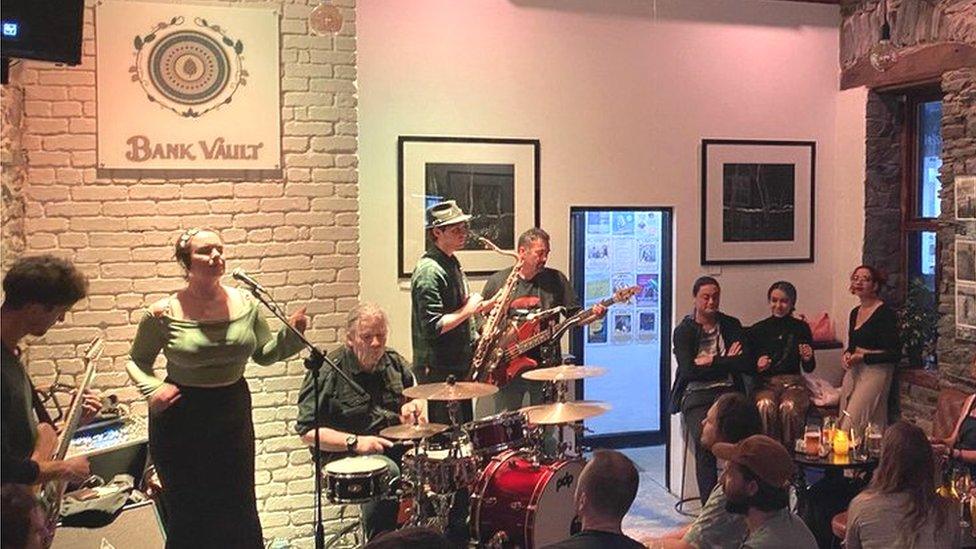
- Published23 May 2024

- Published14 January 2024
